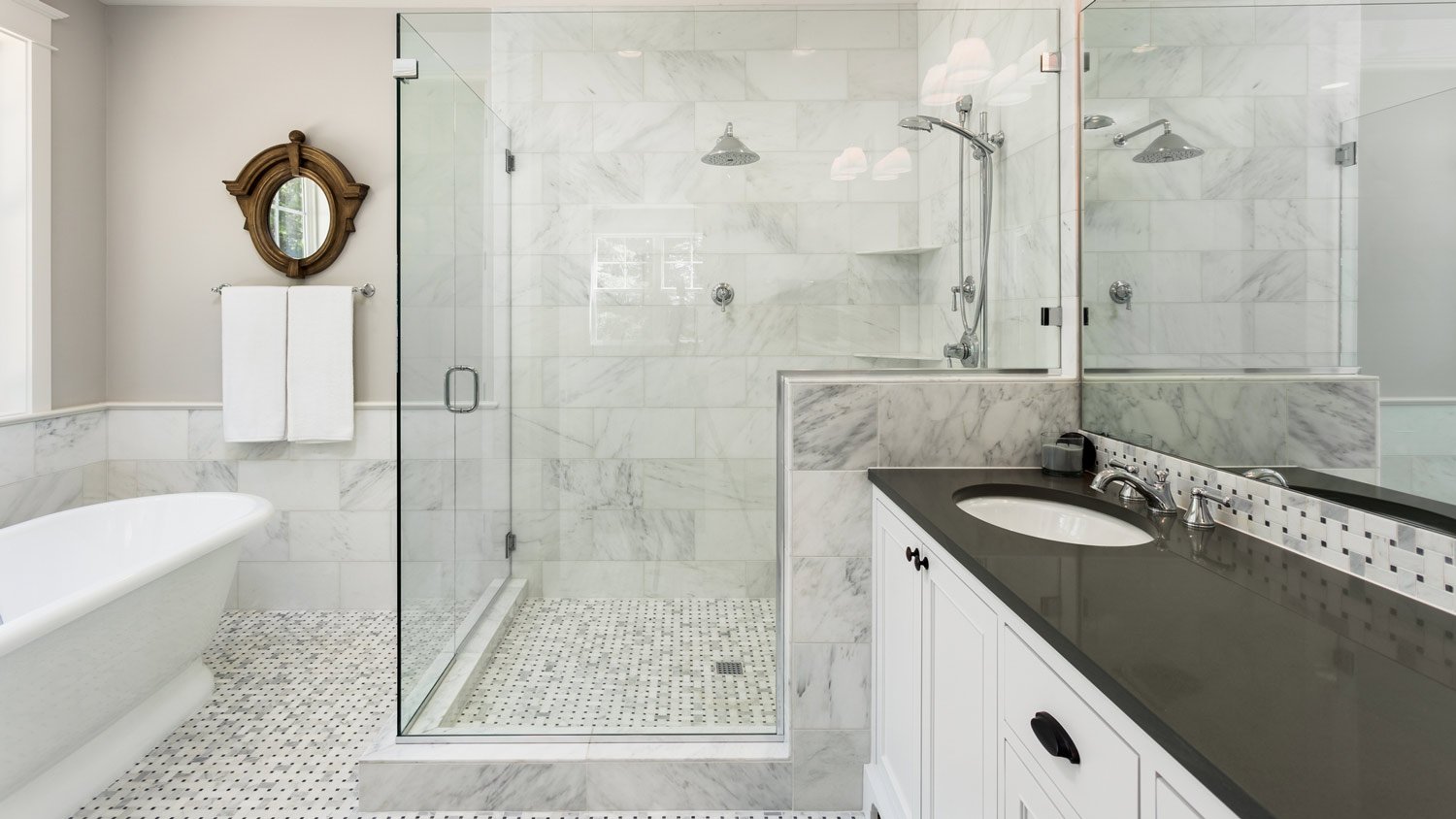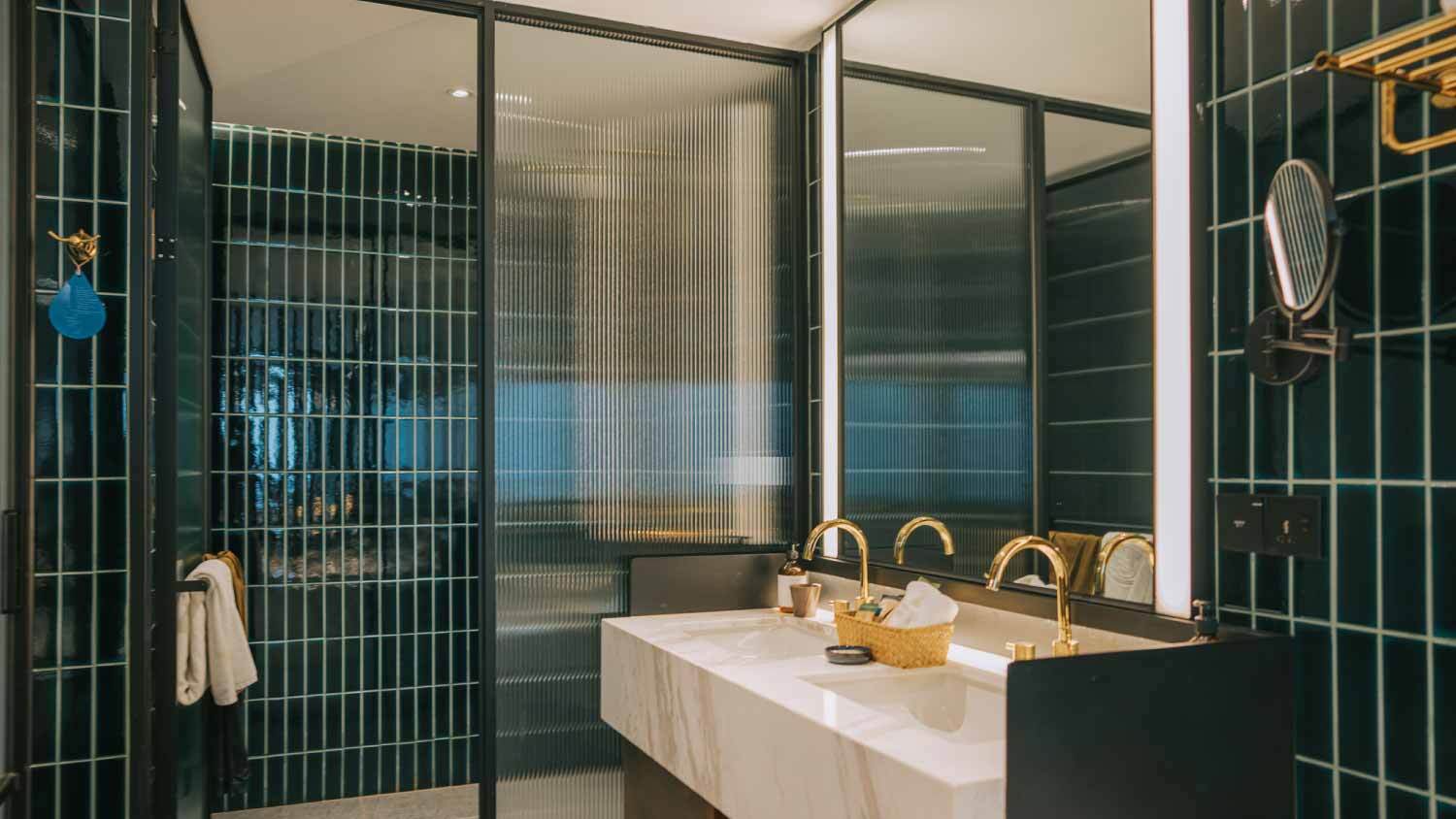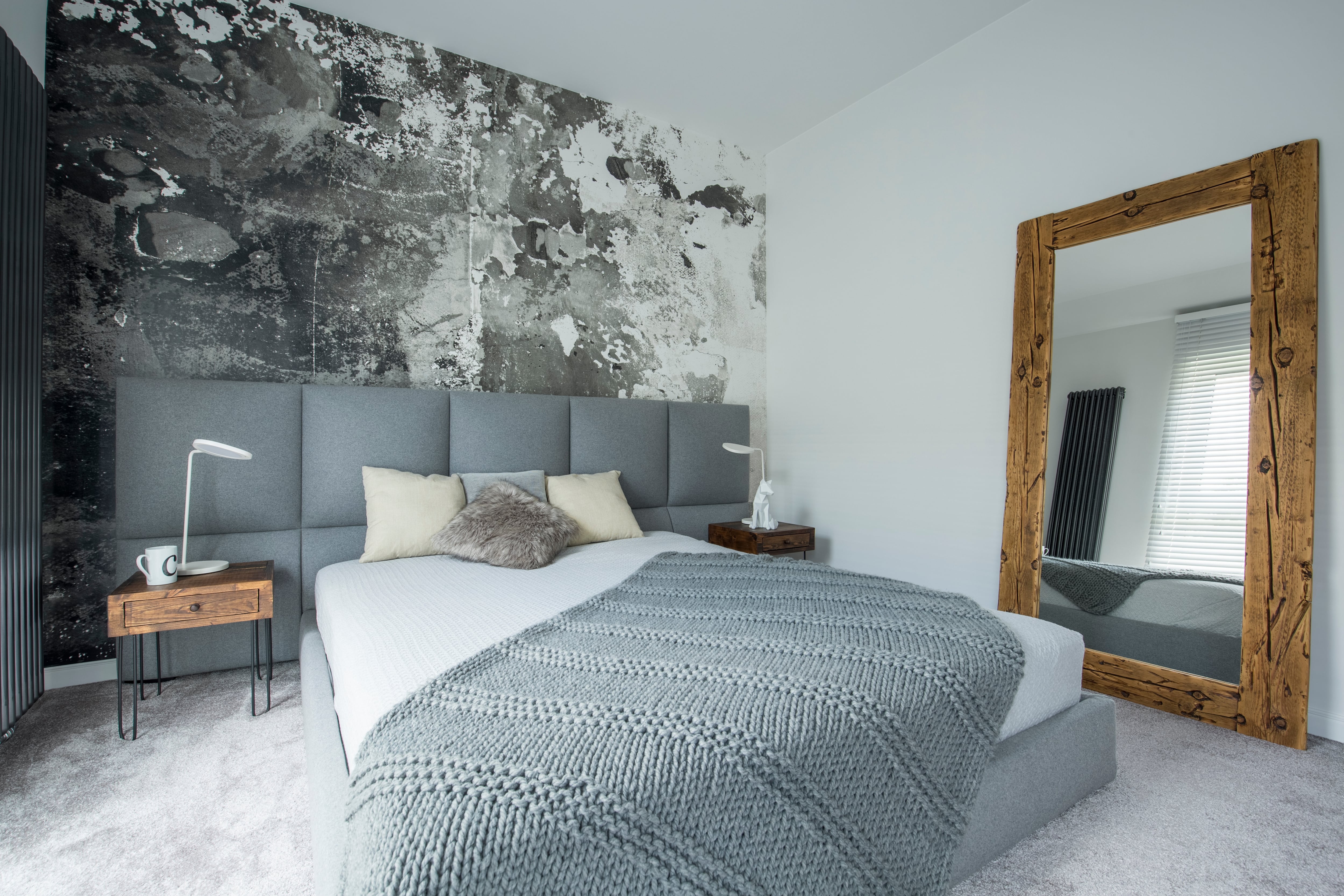
Find out the average glass wall cost, including installation, materials, and ways to save. Get transparent pricing and tips for your glass wall project.
Mirror installation costs an average of $313, with most homeowners paying between $159 and $487. Your price depends on mirror size, type, and installation complexity.


Mirror installation involves securely mounting new mirrors in bathrooms, gyms, entryways, or other living spaces.
The main cost factors include mirror size, type, labor rates, and any custom features like lighting or specialty hardware.
Investing in quality installation can increase home appeal and offer a modest return if you update key areas like bathrooms or entryways.
New mirrors not only improve light and create the illusion of space but also add safety and convenience with professional mounting.
For larger mirrors, expect labor charges of $50 to $100 per hour and factor in potential costs for special mounting or wall prep.
This article was created using automation technology and thoroughly fact-checked and edited by an Angi Editor in accordance with our AI policy.
Mirror installation cost averages $313, with most homeowners spending between $159 and $487 for a standard project. Prices can be as low as $69 for a small, simple mirror, but large or custom installations can exceed $900. Mirror installation cost is often calculated per mirror or per square foot, and labor ranges from $50 to $100 per hour.
Let’s explore the factors that impact the price, from mirror size to installation complexity, so you can confidently plan your next project.
The size of your mirror plays a major role in determining the total mirror installation cost. Larger mirrors require more material and more careful handling, which increases both material and labor costs. Small mirrors, like those above vanities, are the most affordable to install, while full-length or wall-to-wall mirrors—such as those in gyms or dance studios—cost more due to their size and weight.
Mirror thickness and weight also matter. Thicker, heavier mirrors need additional supports and more labor, which increases the installation cost. Oversized or custom-shaped mirrors often require special equipment and extra installers.
| Bathroom vanity | Small (2–4 sq. ft.) | $80–$250 |
|---|---|---|
| Full-length | Medium (6–12 sq. ft.) | $200–$600 |
| Wall-to-wall/gym | Large (20+ sq. ft.) | $700–$2,000 |
| Decorative | Varies/custom | $150–$900 |
Understanding the factors that drive mirror installation costs can help you make informed decisions and budget accurately. Several key factors influence your total price.
Mirror installation is often handled by general contractors, glass specialists, or experienced local mirror installers. Labor rates range from $50 to $100 per hour, or sometimes per mirror or square foot for larger jobs. There may be minimum service fees—often $100 to $150—which can make small projects more expensive per mirror.
Complexity impacts labor costs:
Installing a heavy mirror on drywall is less involved than mounting one on brick or tile.
Difficult locations, such as high walls or tight spaces, can also add time and expense.
Labor rates vary by region, with urban areas tending to cost more.
Standard installs may take one to two hours, while custom or oversized mirrors can require half a day or more.
Permits are not required for most residential mirror installations. However, if you plan to install a very large or heavy mirror, especially in a commercial space, you may need a permit to ensure safety standards are met.
Permit fees can range from $50 to $200, depending on your municipality. Always check with your local building department before starting a major installation.
Custom features can quickly increase your mirror installation cost. Popular upgrades include:
Beveled or polished edges
Etched or frosted designs
Tinted or anti-fog coatings
Built-in LED lighting or smart features
Specialty mounting hardware, such as frameless or floating systems, also adds cost. Custom shapes, sizes, or unique finishes will require additional labor and materials, increasing your overall price.
Beyond the mirror and its features, several other elements can impact your bill:
Complex installation needs, such as prepping uneven walls or reinforcing structures.
Difficult-to-access locations (second stories, high ceilings).
Site prep, including removal of old mirrors and wall repairs.
Delivery fees, especially for large or fragile mirrors.
Post-installation cleanup and debris removal.
Design consultation fees for custom projects.
Inspection costs for large or commercial installations.
All these elements can add anywhere from $50 to $500 or more to your total mirror installation cost.
There are a few ongoing and optional expenses that can affect your overall investment in mirror installation.
Many professional installers and manufacturers offer warranties on both materials and labor. Standard warranties cover defects and installation errors for one to five years. Extended warranties, which provide extra coverage for accidental damage or longer periods, may cost an additional $30 to $100. Always ask what is included before purchasing.
If you choose mirrors with integrated LED lighting or smart features, factor in ongoing energy use. LED mirrors are energy efficient, but you may spend $10 to $30 per year on electricity. Smart mirrors with displays or built-in defoggers can increase annual operating costs slightly.
Routine cleaning is essential for keeping your mirrors clear and streak-free. Most mirrors require only regular glass cleaner and a soft cloth, costing $10 to $30 per year. Specialty mirrors with coatings or electronics may require specific cleaning products or even periodic professional cleaning, which can cost $50 to $150 annually.
Sales tax applies to both materials and labor in most areas, ranging from 5% to 10%. Check your local tax rates to estimate this additional expense.
Homeowner’s insurance covers accidental damage during installation, but not every policy is the same. For high-value or custom mirrors, you may need to add a rider or purchase extra coverage, which can cost $10 to $50 per year.
You might consider installing a mirror yourself to save on labor, but weigh the risks and benefits carefully. DIY mirror installation cost includes the price of the mirror, mounting hardware, and any required tools like stud finders, anchors, and safety gear. Most homeowners spend $30 to $100 on hardware and supplies, plus the cost of the mirror.
While DIY can save $100 to $400 in labor, it comes with risks. Improper installation can lead to damage, injury, or voided warranties. Large, heavy, or custom mirrors are best left to professionals, as are installations on tile, concrete, or high walls. Professional installation is the safest option for complex or valuable mirrors.
It’s not always necessary to replace a mirror when issues arise. Minor repairs—such as fixing loose mounting, addressing small chips, or treating discoloration—can cost $50 to $200. Replacing a mirror, especially if it is custom or oversized, often costs more.
If repair costs exceed 50% of the replacement cost, replacement is the better option. Antique or specialty mirrors may justify higher repair costs for preservation. Consider the mirror’s age, warranty status, and overall condition before deciding.
Installing new mirrors can enhance both the appeal and functionality of your home. Well-placed mirrors improve natural light, create a sense of space, and add modern style, especially in bathrooms, entryways, and workout areas. While the direct return on investment (ROI) is modest compared to major remodels, mirrors can make your home more attractive to buyers and improve daily living.
Maximize value by choosing mirrors that fit your home’s style and needs, focusing on quality installation, and adding energy-efficient or universal design features. Professional installation not only improves safety but also ensures your mirrors look their best.
Here are some helpful tips ot reduce mirror installation costs:
Get multiple quotes from local mirror installation pros.
Choose standard sizes and shapes to avoid custom fees.
Install during off-peak seasons for potential discounts.
Handle the removal and disposal of old mirrors yourself.
Opt for simpler mounting hardware if possible.
Bundle mirror installation with other home improvement projects for savings.
Home is the most important place on earth, which is why Angi has helped more than 150 million homeowners transform their houses into homes they adore. To help homeowners with their next project, Angi provides readers with the most accurate cost data and upholds strict editorial standards. We extensively research project costs to develop the pricing data you see, so you can make the best decisions for you and your home. We rely on reputable sources, including the U.S. Bureau of Labor Statistics, academic journals, market studies, and interviews with industry experts—all to ensure our prices reflect real-world projects.
Want to help us improve our cost data? Send us a recent project quote to [email protected]. Quotes and personal information will not be shared publicly.
The whole experience working with the glass company was fantastic! I would highly recommend them for any glass project in your home!! Scott Renkes
Always on time, very knowledgeable about his craft,cleans up after themselves, reasonable pricing. Would highly recommend them to paint my house again.
Ricci was on time Very professional and efficient Done within the hour Replaced full slider glass double paned by himself. I couldnâ t be happier with the work and professionalism
This is a small family owned company that will give you excellent service.
A very good company to work with: professional, reasonably priced, and willing to go above and beyond to satisfy the customer. We had rotted wood and new aluminum roof trim installed, and the result is perfect and done on time. I definitely recommend them and will certainly use them for...
I had a few double-pane glass windows and screens that had gotten foggy over the years. Moses came by and measured the windows and the screens, returned a week later to install new glass. The results are fabulous, and the replacement cost was very reasonable. I highly recommend District...
I know Chris and is family business for long time , they are the best and very professional, on time and easy with quality work
Absolutely a fantastic job, the walls a ceiling are like glass. Very impressive work.
The service was excellent! Norwin's trap caught the dangerous bob cat in short order. I am very thankful!
Wayne and his son replaced a 4x8 piece of tempered glass in our sun room , the whole job from start to finish was truly fantastic and very professional !! Highly recommended !! Thank you !!
From average costs to expert advice, get all the answers you need to get your job done.

Find out the average glass wall cost, including installation, materials, and ways to save. Get transparent pricing and tips for your glass wall project.

Discover the cost to install a custom-cut mirror in your home. Discover price factors, installation options, and expert tips to save on your custom mirror project.

Discover the average shower door installation cost, including labor and materials, plus tips to save on your bathroom upgrade.

Understand these 6 common bathroom mirror problems and how to fix them, either by yourself or by hiring a professional.

Standard mirror sizes depend on the project. Use this guide to mirror sizes to choose the best mirror dimensions to fit the space you have in mind.

Discover the cost to resilver a mirror, including average prices, key cost factors, and tips to help you budget and save on your mirror restoration project.